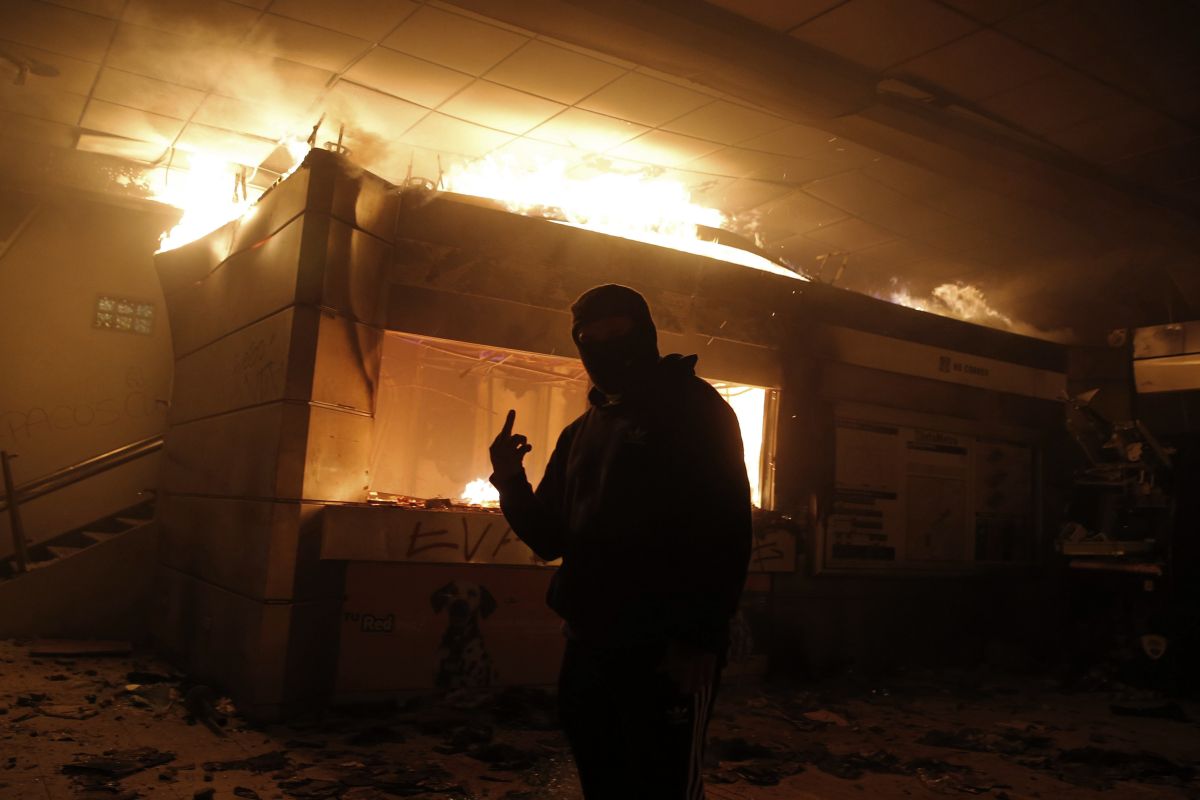COVID-19: Chilean President Pinera presents bill to protect independent workers
The proposal seeks to complement the measures already announced by the government and to generate protection for formal, informal, independent, and unemployed workers.
Attacks on metro stations forced the closure of the entire subway system, which is the key form of public transport in the congested and polluted capital, carrying three million passengers a day.

Attacks on metro stations forced the closure of the entire subway system, which is the key form of public transport in the congested and polluted capital, carrying three million passengers a day (Photo: AFP)
Chile president Sebastián Piñera declared a state of emergency in Santiago late on Friday and gave the military responsibility for security after a day of violent protests over increases in the price of metro tickets.
Pinera said, “I have declared a state of emergency and, to that end, I have appointed Major General Javier Iturriaga del Campo as head of national defense, in accordance with the provisions of our state of emergency legislation”.
On Friday, clashes broke out between the protesters and the police in several parts of the city throughout the day and the subway was shut after attacks on several stations.
Advertisement
Attacks on metro stations forced the closure of the entire subway system, which is the key form of public transport in the congested and polluted capital, carrying three million passengers a day.
After attacks against nearly all the 164 stations where many gates and turnstiles were destroyed, the metro operator took to Twitter, and said, “The entire network is closed due to riots and destruction that prevent the minimum security conditions for passengers and workers”.
The Santiago Metro, at 140 kilometres (90 miles) the largest and most modern in South America, is expected to remain closed this weekend and could reopen gradually next week.
Closure of the metro forced many Santiago residents to walk home, sometimes long distances, resulting in scenes of chaos.
Earlier on Thursday, 133 people had been arrested for causing damage to metro stations, estimated at up to 500 million pesos ($700,000).
Advertisement